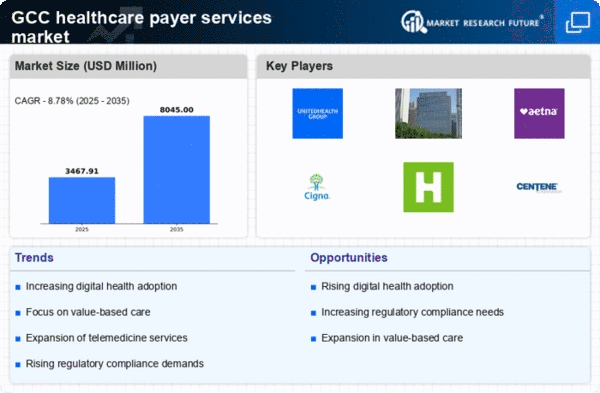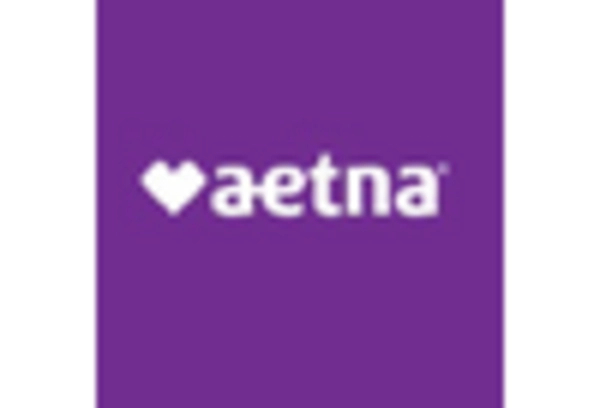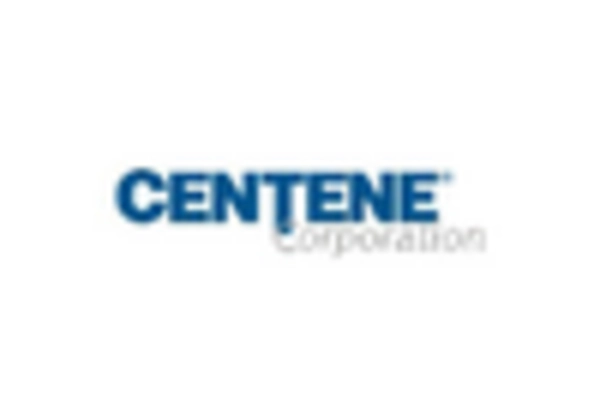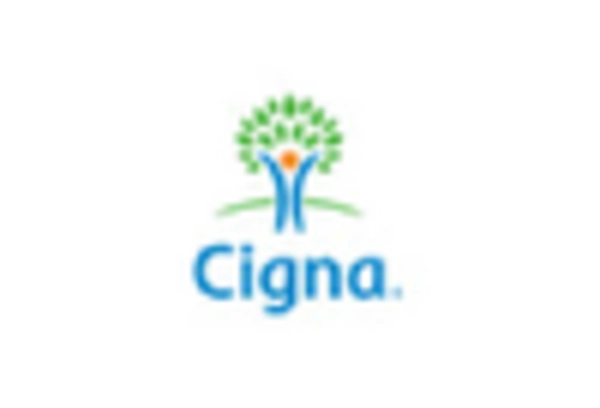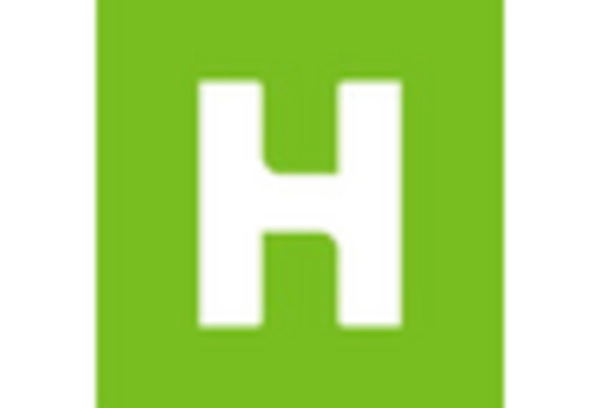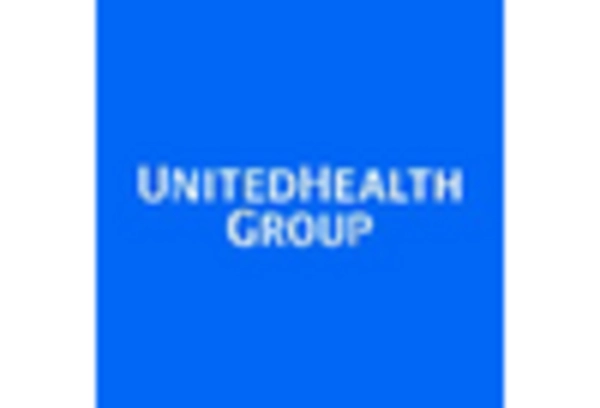Rising Healthcare Expenditure
The healthcare payer-services market is significantly influenced by the rising healthcare expenditure in the GCC region. Governments and private entities are investing heavily in healthcare infrastructure, with spending projected to reach $100 billion by 2025. This increase in expenditure is likely to enhance the quality of healthcare services, leading to higher demand for payer-services. As healthcare costs rise, payers are compelled to innovate and offer more comprehensive coverage options to meet the evolving needs of consumers. This trend may also drive the adoption of value-based care models, as payers seek to manage costs while improving patient outcomes.
Focus on Preventive Care Initiatives
The healthcare payer-services market is increasingly focusing on preventive care initiatives as a strategy to reduce long-term healthcare costs. By promoting wellness programs and preventive screenings, payers aim to mitigate the incidence of chronic diseases, which are prevalent in the GCC region. This proactive approach not only enhances patient health outcomes but also reduces the financial burden on healthcare systems. It is estimated that investing in preventive care can yield a return on investment of up to 5:1 in terms of reduced healthcare costs. Consequently, payers are likely to expand their offerings to include more preventive services, aligning with the broader goal of improving population health.
Technological Advancements in Healthcare
The healthcare payer-services market is experiencing a notable transformation driven by rapid technological advancements. Innovations such as artificial intelligence (AI), machine learning, and big data analytics are enhancing operational efficiencies and improving patient outcomes. For instance, AI algorithms are being utilized to streamline claims processing, reducing administrative costs by up to 30%. Furthermore, the integration of telemedicine platforms is expanding access to care, which is crucial in the GCC region where healthcare demand is rising. As technology continues to evolve, it is likely that payer-services will increasingly adopt these tools to enhance service delivery and patient engagement.
Increasing Demand for Personalized Healthcare
The healthcare payer-services market is witnessing a growing demand for personalized healthcare solutions. Patients are increasingly seeking tailored treatment plans that cater to their individual health needs. This trend is reflected in the rising popularity of personalized medicine, which is projected to account for approximately 20% of the healthcare market in the GCC by 2026. Payers are responding by developing customized insurance products that align with these preferences, thereby enhancing patient satisfaction and loyalty. This shift towards personalization is expected to drive competition among payers, ultimately benefiting consumers through improved service offerings.
Regulatory Environment and Compliance Challenges
The healthcare payer-services market is navigating a complex regulatory environment that poses both challenges and opportunities. Regulatory bodies in the GCC are implementing stringent compliance requirements aimed at enhancing transparency and accountability in healthcare services. This evolving landscape necessitates that payers invest in compliance management systems to avoid penalties and ensure adherence to regulations. As the regulatory framework continues to evolve, it is anticipated that payer-services will need to adapt their operational strategies to remain compliant while also striving for operational efficiency. This dynamic may lead to increased collaboration between payers and regulatory authorities.


